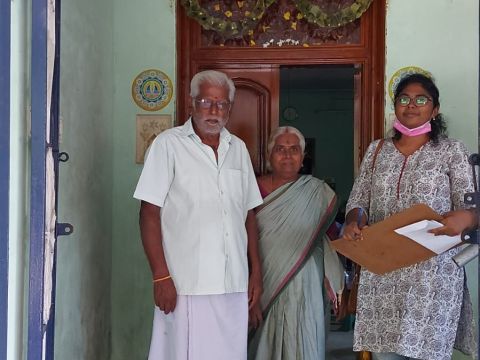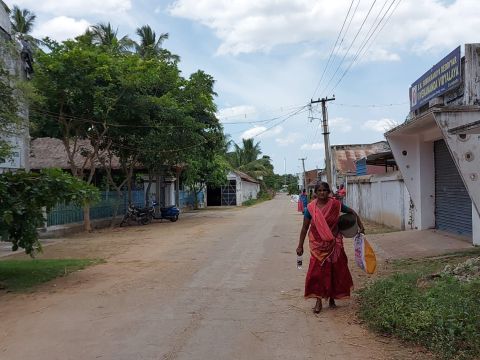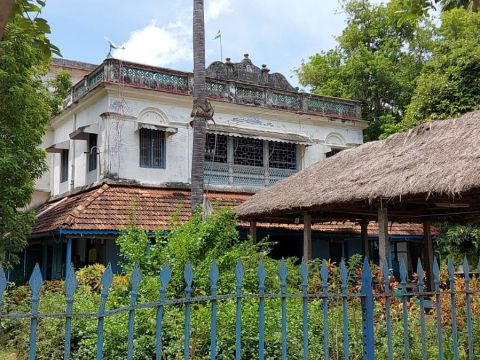Fading memory of Neela Thotti
Neela thotti/ thotti is the tamil colloquial term that refers to the avuri (indigo) wet leaf production tank. The existence of a number of thottis in a region implies the range and scale of cultivation and production of indigo. Before the 90s in the northern part of Tamilnadu, India, indigo was cultivated on a large scale for indigo cake production with numerous thottis. The development of synthetic dyes affected the market value of natural dyes. So the production of avuri declined and thottis were abandoned or demolished. This is observed in Iruvelpet village in Villupuram district of Tamilnadu. According to Gilbert Slater’s records in Some Southern States, in 1916, Iruvelpet village cultivated indigo on 44 acres of land. But at present, indigo cultivation is a faded memory for the villagers. A 74-year-old retired teacher, Janarthanam. K, is one of the few who still remembers the days of indigo production, narrated the history of neela thotti in Iruvelpet. He said there were 10 thottis in Iruvelpet and one more thotti in the neighbouring village, Karapattu. These thottis were owned by late E.V. Sundaram Reddi (E.V.S), zamindar (land lord) of Iruvelpet, who belonged to the dominant Telugu-speaking caste of Reddis. Owing to the fall in the market price for Indigo, the Zamindar’s descendants moved away from its cultivation and production. In recent decades, thottis have been demolished and houses have been built on th same land, leaving no trace of them. It was the son of E.V.S, who demolished the thottis. Mr. Janarnathan witnessed the demolition and explained how difficult it was. ‘There were no bulldozers during that time and the thotti was broken down manually. The walls of the thotti were 2 feet in breadth and built with lime. It took hours to break it. The thottis in Iruvelpet were of size 10 sq. feet. In Karapattu, the thotti was larger than the ones in Iruvelpet.’ Also he added that avuri was cultivated for indigo wet leaf production in the five surrounding villages that belonged to Zamindar. Further he also said that the water used for mass extraction of indigo was drawn from a well nearby to the thottis in Iruvepet which was about 30 feet in breadth and 30 feet in depth. The well was demolished along with thottis. But, now the younger generation of villagers are not even aware that their village cultivated indigo in mass scale and the thottis which used to be a major producer of indigo cakes. It remains only in the memory of few.
Photographs takes by Dr. Aarti Kawlra


